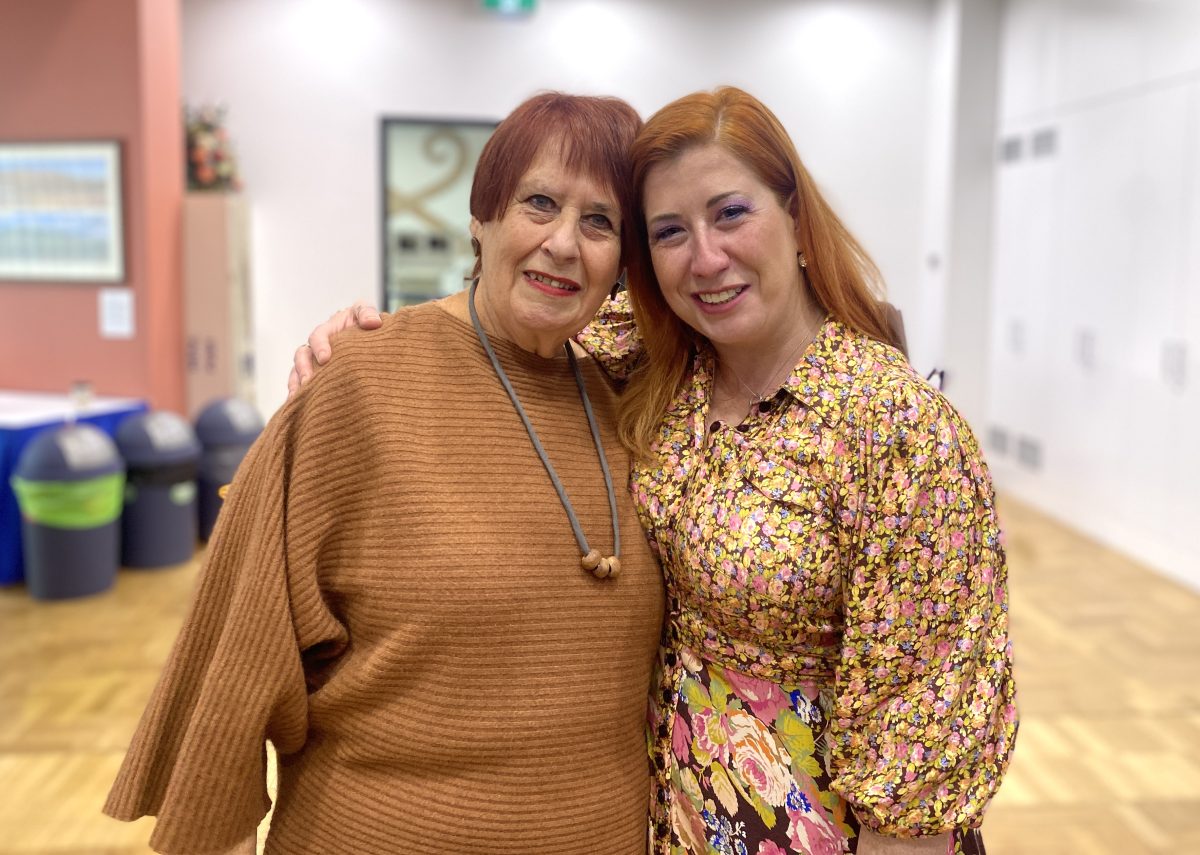
Human Rights Minister Tara Cheyne (right) and advocate Jacky Ryles are all smiles after the new VAD laws were passed in the ACT Legislative Assembly. Photo: Oliver Jacques.
Advocates say ACT families will soon be able to farewell loved ones properly rather than face traumatic final interactions, after the historic law was passed in the ACT.
The Legislative Assembly voted in favour of voluntary assisted dying (VAD) legislation that gives adults with advanced illnesses expected to cause death and facing intolerable suffering the ability to take steps to end their life.
Jacky Ryles, who lost close friend and prominent coronial reform campaigner Ros Williams to suicide in April last year, celebrated the reform.
“It’s a great day but a sad day because so many people haven’t had the benefit of this law,” she said.
“In Ros’s case, she ran out of choices. She had a choice of suffocating to death as she had motor neurone disease, so she made a torturous decision of taking her own life, which has huge impacts on family and her community.
“It’s sad that her family couldn’t be with her on the day that she died. Nobody can get over that. One of the best benefits that will come from VAD is that people will be able to make plans, say their goodbyes, hold hands without fear of being left to die alone.”
Ms Ryles echoed the sentiments of the bill’s architect, Human Rights Minister Tara Cheyne, who dedicated the new law to her late father, Peter Douglas.
Fighting back tears, she told the Legislative Assembly her dad had a catheter inserted in him because he was at risk of falling but then forgot he had it, so he clashed with Ms Cheyne when she tried to stop him from getting out of bed and going to the bathroom.
“Our last conversation could’ve been one of love, but he was cursing me,” she said. Our last touch that we both remembered could have been a hug, but it was a wrestle.
“There’s no guarantee he would have pursued voluntary assisted dying … but he and countless like him should have had the option.”
Ms Ryles said Ms Williams would now be “bouncing on my shoulders”.
“She made me promise in one of the last conversations we had that I’d fight on until this day came and I stand here very proudly,” she said.
“I represented her, her family and all the people we failed, we did fail a lot of folk. But I’m looking to the future and saying, ‘That’s how unfortunate it was’, we can make things better … the ACT should be proud.”

There are tears on the Assembly floor as Minister Cheyne’s (centre, hugging Health Minister Rachel Stephen-Smith) VAD bill becomes law. Photo: Supplied.
VAD is now legal everywhere in Australia except the Northern Territory, with ACT laws the most liberal in the country.
Unlike in other states, patients do not need to have a specific time frame until they are expected to die. There are also penalties for individuals and institutions that obstruct access to VAD.
This was welcomed by Dr Linda Swan, CEO of Go Gentle Australia, a nationwide VAD advocacy group launched by broadcaster Andrew Denton.
“[ACT] Parliament should be congratulated for putting the dying person’s needs ahead of institutions’ ideology,’’ Dr Swan said.
Dr Swan acknowledged there would be people disappointed that there will be no access to VAD for people with dementia and Alzheimer’s disease in the ACT law, which is also the case for the states.
“It is the number 1 question we are asked in relation to VAD, and the community wants and expects a solution,” she said. ”As a society, we cannot put our head in the sand and ignore the fact that in the coming years more and more Australians will be affected by this terrible disease.”
VAD will be available to eligible Canberrans on 3 November 2025.
Members of the community can visit a voluntary assisted dying information page for more details and to subscribe for updates on voluntary assisted dying in the ACT. This website will be updated regularly as work progresses on the VAD scheme.
If the issue of VAD raises issues for you or your family, you can contact Lifeline on 13 11 14 or Griefline on 1300 845 745.





















